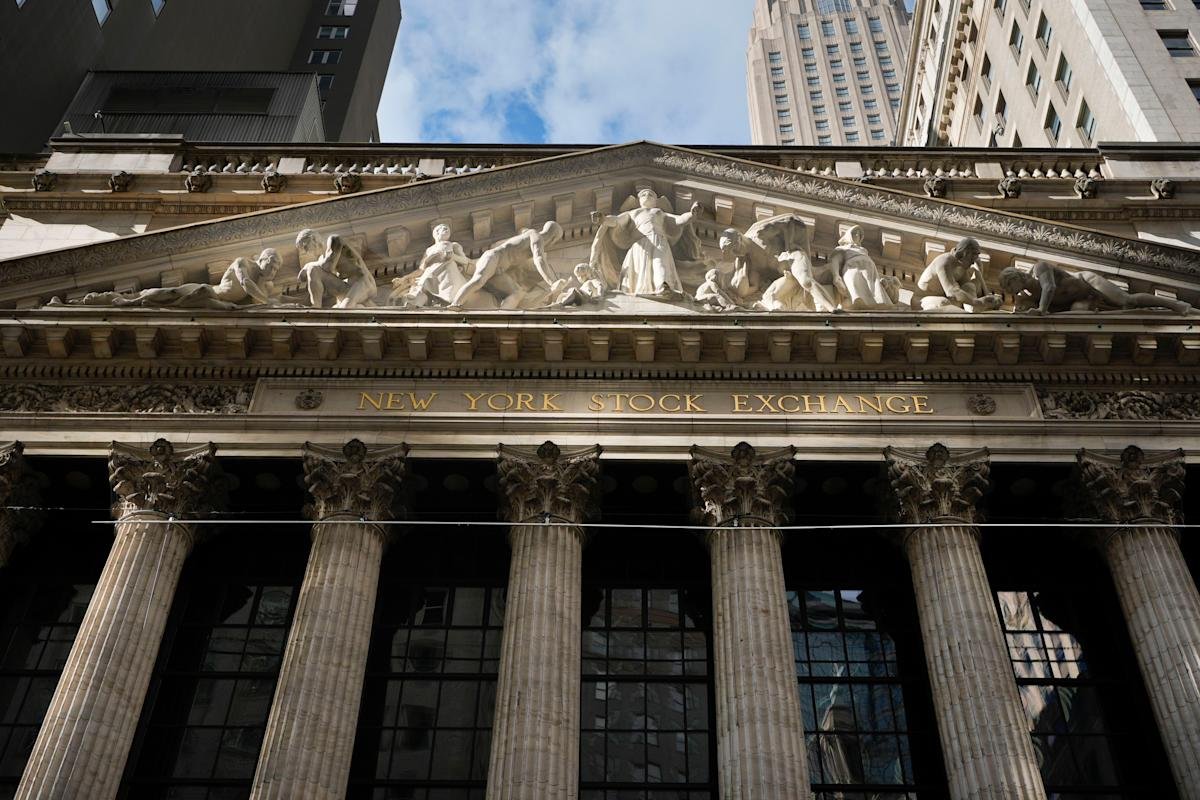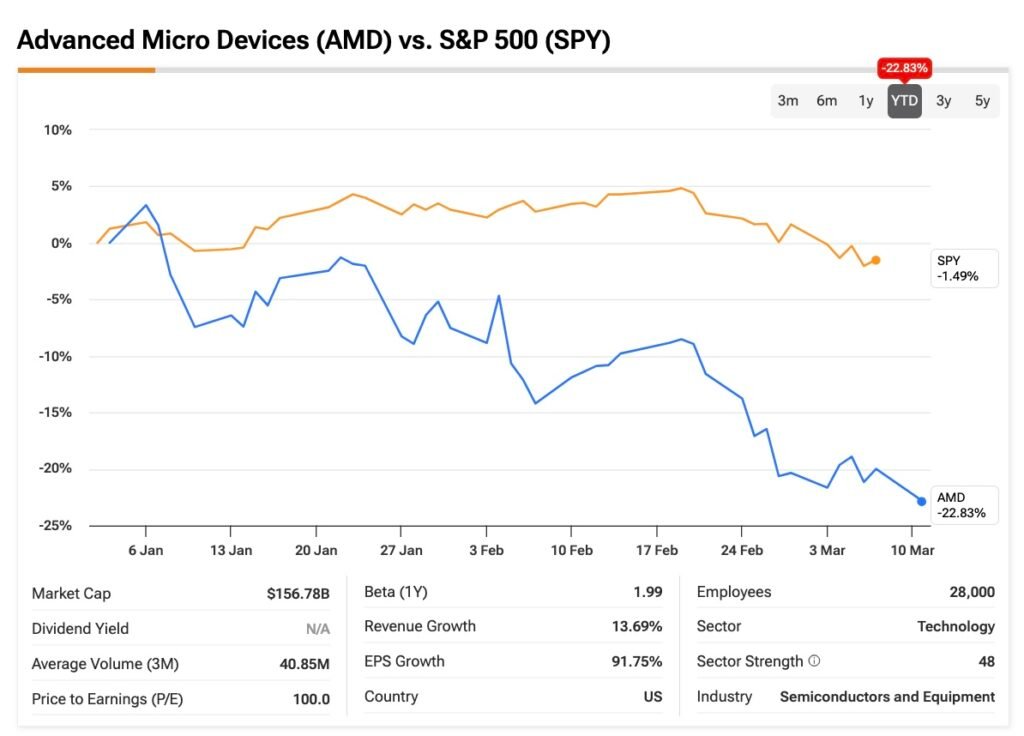NEW YORK (AP) — U.S. stocks climbed Wednesday after President Donald Trump pulled back on some of his tariffs temporarily. The move revived hope on Wall Street that Trump may avoid a worst-case trade war that grinds down economies and sends inflation higher.
The S&P 500 rose 1.1% to bounce back from a sell-off that had erased all of its “Trump bump ″ since Election Day. The Dow Jones Industrial Average climbed 485 points, or 1.1%, and the Nasdaq composite gained 1.5%.
The market turned sharply higher after Trump said he’s granting a one-month exemption for U.S. automakers on his stiff new tariffs for Mexican and Canadian imports. Trump made the move after talking with Ford, General Motors and Stellantis, which owns Chrysler.
All of the Big Three automakers could have been hurt by such tariffs because of how much production happens across the countries. Trump’s announcement sent relief through Wall Street, and Ford’s and General Motors’ stock both jumped more than 5% to help lead a widespread rally across the market.
The worry has been that such tariffs would not only hurt profits for companies but also jack up prices for cars and other bills for U.S. households already struggling with still-high inflation. The hope is that Trump is using the threat of tariffs as a tool for negotiation and that he may ultimately institute less painful moves for the economy and global trade if he can win what he wants.
Of course, Trump did not roll back all of the tariffs he announced on the United States’ largest trading partners, including on China. His latest move may also simply add more uncertainty to a market that’s already reeling from it. It was just on Monday that Trump had said there was “no room” left for negotiations that could lower the tariffs on Mexico and Canada, which took effect Tuesday and caused the U.S. stock market to tumble.
“The economic impact and consumer impact is still ahead of us,” said Sameer Samana, head of global equities and real assets at Wells Fargo Investment Institute. “It comes back to what no one really knows, and that is how long these tariffs stay in place.”
Even if tariffs ultimately end up being less harsh than feared, just the threat of them has already had a negative effect on U.S. households and businesses.
Confidence among U.S. consumers has soured due to expectations of higher inflation because of tariffs. Businesses, meanwhile, are struggling to keep up with all the changes coming from Washington, and U.S. manufacturers said their growth is approaching stall-speed amid worries about tariffs.
A couple reports on Wednesday gave a mixed read on the U.S. economy. One suggested U.S. employers pulled back sharply on their hiring last month. The report from ADP could be a warning signal ahead of the more comprehensive jobs report that’s coming Friday from the U.S. Labor Department.
A separate report said growth for U.S. finance, real estate and other businesses in the services sector is better than economists expected. But businesses also said in the survey they’re confronting “chaos” and uncertainty because of tariffs, according to the Institute for Supply Management.
Altogether, a recent stream of weaker-than-expected reports on the U.S. economy has raised the possibility of a worst-case scenario known as “stagflation.” It’s something that doesn’t happen often, where the economy is stagnating and inflation is high, and policy makers at the Federal Reserve don’t have a good tool to fix it.
The U.S. economy closed last year running at a solid pace. If it were to weaken sharply, the Fed could cut its main interest rate in hopes of making borrowing easier and goosing the economy. But rate cuts put upward pressure on inflation. If prices for eggs and other everyday items were rising because of tariffs, that could box in the Fed.
For his part, Trump said in an address before Congress Tuesday night that he’s going ahead with tariffs, with more on track to go into effect on April 2.
“Tariffs are about making America rich again and making America great again,” he said. “And it’s happening and it will happen rather quickly. There will be a little disturbance, but we’re OK with that.”
On Wall Street, Brown-Forman jumped 10.1% after the company behind Jack Daniel’s whiskey reported stronger profit for the latest quarter than analysts expected. Perhaps more importantly, CEO Lawson Whiting also said his company isn’t changing its forecasts for upcoming sales, even as “we anticipate continued uncertainty and headwinds in the external environment.”
Whiting said the decision by Canadian provinces to take U.S. whiskeys off their store shelves is “worse than a tariff because it’s literally taking your sales away,” adding that the action is “a very disproportionate response to a 25% tariff.” But he also said Canada accounted for only 1% of Brown-Forman’s total sales.
On the losing end of Wall Street was Campbells. The food company fell 2.9% after cutting some of its financial forecasts, citing discouraging trends for its snack products.
All told, the S&P 500 rose 64.48 points to 5,842.63. The Dow Jones Industrial Average climbed 485.60 to 43,006.59, and the Nasdaq composite rallied 267.57 to 18,552.73.
In the bond market, the yield on the 10-year Treasury rose to 4.28% following the report on U.S. services businesses from 4.18% just before. That helped it recover some of its sharp slide since January, when it was approaching 4.80%, after worries about the economy’s growth weighed on yields
In stock markets abroad, indexes rose across much of Asian and Europe. Indexes climbed 2.8% in Hong Kong, 1.2% in South Korea, and 1.6% in France.
German stocks rallied 3.4% as the prospective partners in the country’s next government said they want to loosen rules that would allow for more debt.
Stocks outside the United States have been doing better than the S&P 500, even with Trump’s America-First policies.
——-
AP Business Writers Matt Ott and Elaine Kurtenbach contributed.




